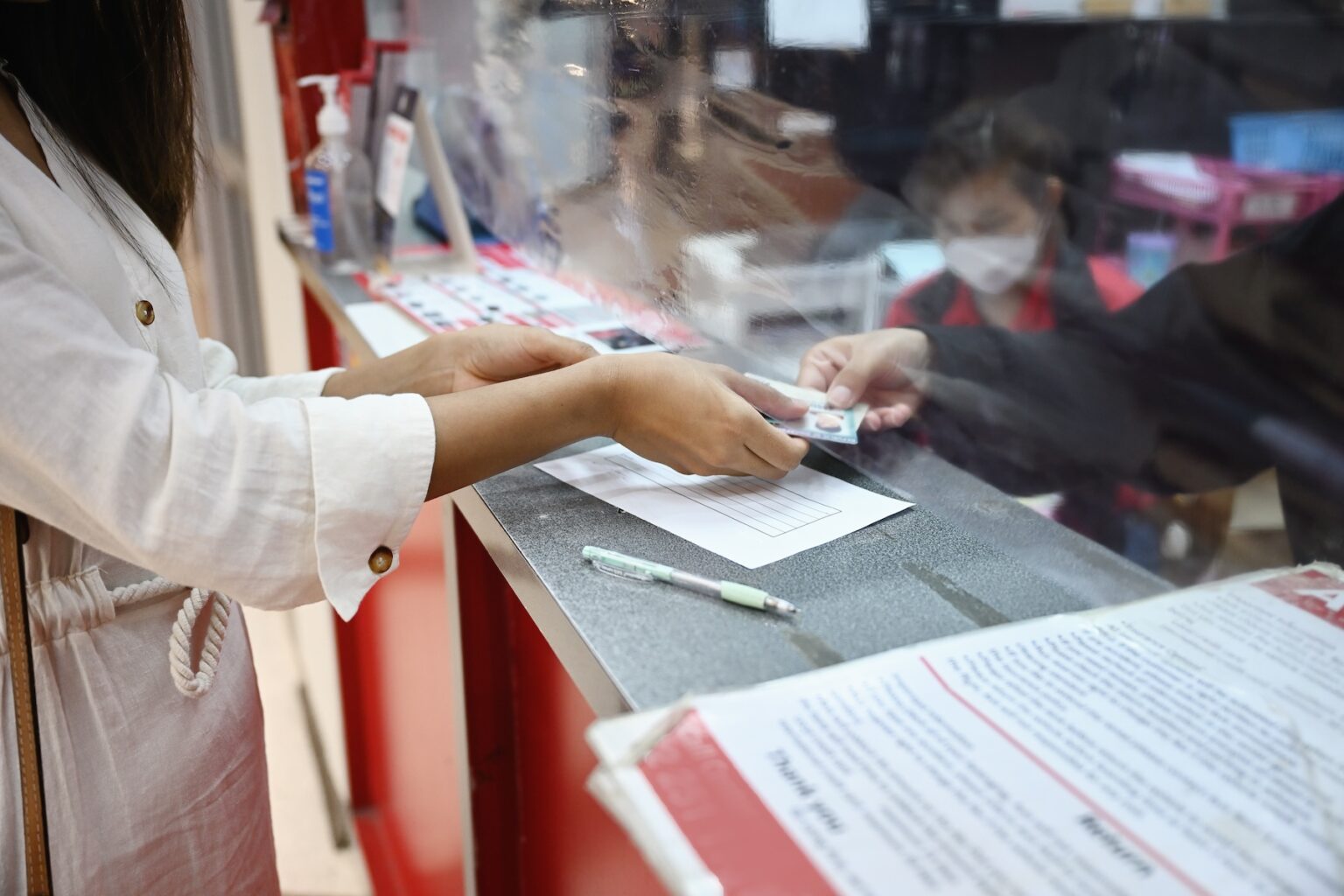If you’re moving to Thailand and live a busy lifestyle, you might find yourself wanting to drive around rather than rely on public transport or cycling. To rent or purchase a vehicle, you’ll need either a standard or specialist driver’s license, depending on how you want to use it.
Like many other countries, obtaining your driving license in Thailand is a process, including attending driving school and successfully passing the required tests.
Read on for more on the following topics:
- Thai driving licenses
- Getting a Thai driver’s license
- Driving tests in Thailand
- Driving lessons in Thailand
- Driving with a foreign driver’s license in Thailand
- Exchanging a foreign driver’s license in Thailand
- Renewing a Thai driving license
- Lost or stolen driving licenses in Thailand
- Thai driving licenses for other vehicles
- Useful resources
Thai driving licenses
A driving license (ใบขับขี่) is legally required for anyone who wants to drive in Thailand. For most expats, the path to driving is either to exchange an existing foreign driver’s license or pass the Thai driving test.

However, if you hold a permanent ASEAN (Association of Southeast Asian Nations) license, you can skip these steps. Mutual agreements allow ASEAN citizens to drive freely in one another’s countries.
Thai driver’s licenses are issued by the Department of Land Transport (DLT – กรมการขนส่งทางบก). A first license is valid for two years and can be renewed for a standard 5-year license. You’ll find the following details on the front of your card:
- A photograph
- License number
- License type
- Issue date
- Expiration date
- Full name
- Birth date
- ID number
The back of a Thai driving license has a magnetic data strip and an image of the cars the holder can legally drive. It also features a signature from the issuing authority and the holder’s full address.
As long as you hold an International Driving Permit (IDP), you can drive with a foreign license in Thailand for up to a year. However, once you’ve settled in Thailand, you should exchange this license for a Thai one as soon as possible. You can apply for a Thai driving license without taking a driving test as long as you have a valid IDP or a full driving license in the English language.
Getting a Thai driver’s license
You must be at least 18 years old to apply for a license and learn to drive in Thailand. If you’re getting your driving license from scratch, you’ll need to follow these steps:
- Hold a valid visa: You must have a non-immigrant visa that allows long stays in Thailand to be eligible for a driver’s license
- Obtain a medical certificate: You need to prove that you are physically fit to drive. To do so, you should visit a qualified clinic for a health check-up. This medical certificate (ใบรับรองแพทย์) costs from ฿50–200.
- Attend driving school: You’ll need to attend a licensed driving center to take lessons
- Pass the exams: Your first test is a 50-minute theory exam. You’ll then complete a practical exam that tests your maneuvering, parking, and driving. These can be completed in a single day.
- Apply for a license: Upon passing your tests, you’ll head to a DLT office to submit a new license application. You’ll be issued a temporary two-year license at first. This will become a full license valid for five years when you renew.
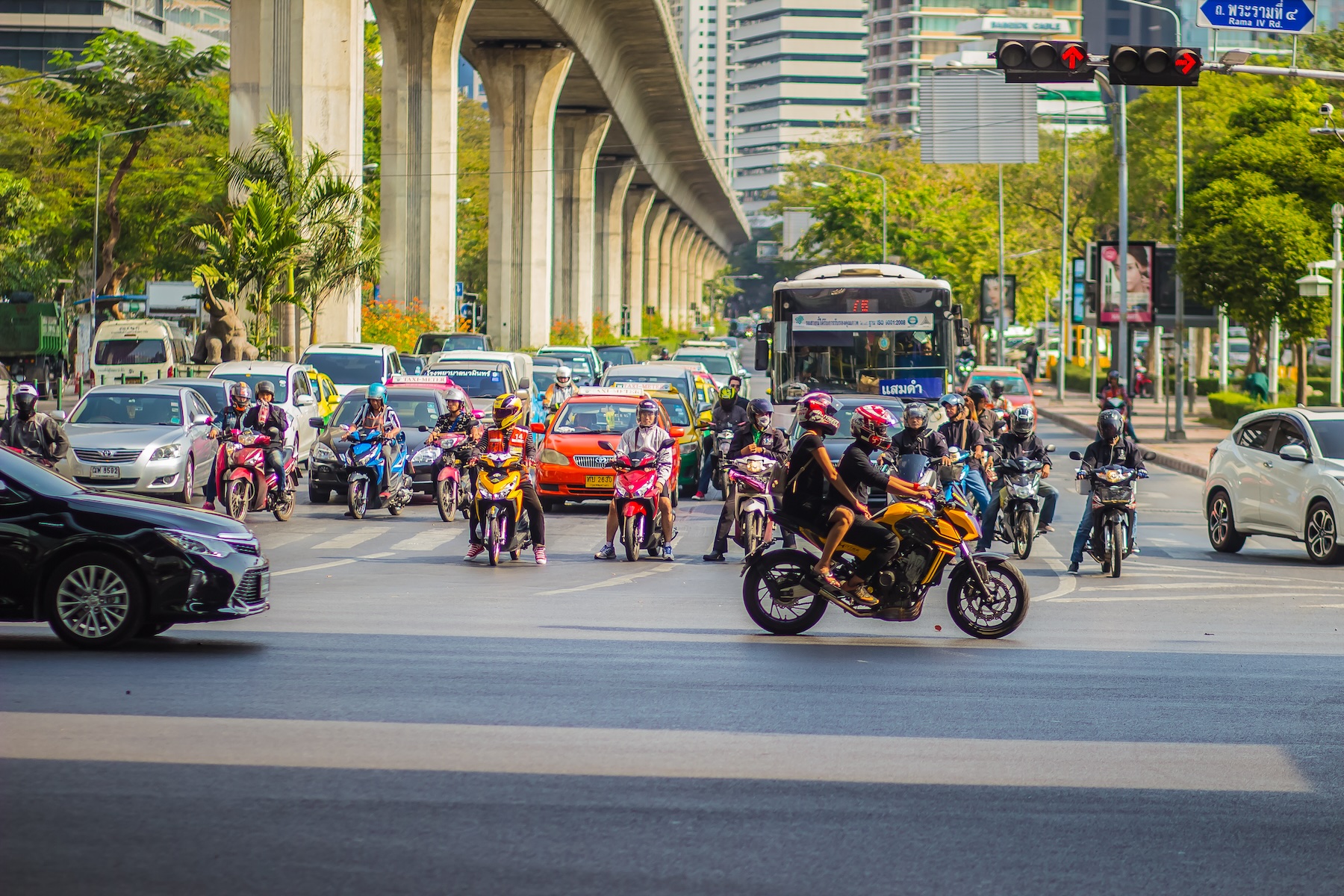
You’ll also need to submit the following application documents:
- Medical certificate
- Residency permit
- Original and photocopies of your passport with a valid visa
- ID card
- Application forms
Driving tests in Thailand
New drivers must complete a series of tests to obtain a Thai driving license. You can register for an appointment online with DLT’s Smart Queue system. Some centers allow you to complete all these in a single day, while others recommend spreading appointments over several days.
Physical exam
Before starting, you’ll need to take a series of tests at your local DLT center, confirming your cognition and physical abilities. These include tests for color blindness, peripheral vision, reflexes, and depth perception. You’ll need to pass these first to move on to the following exams.
Theory test
You can register for your theory exam online. Here, you can also watch informative videos and read up on the rules of the road. They also offer a practice exam so you can make sure you’re prepared for the test. On test day, you’ll be taken into a room to watch an informational video on traffic laws. This may be available in English, but make sure to check in advance, just in case, especially if you are in an area with few expats.
Upon completing the prep, you’ll take a 50-question multiple-choice test with a pass mark of 90%. If you fail the test, some test centers allow you to retake the exam the following hour, while other centers will ask you to return another day. Studying is essential as the English translations are not always entirely clear. You should receive an appointment card to book your practical test upon passing.
Practical test
The practical test is done on a designated course at a DLT test center and requires you to pay attention to commands. Hitting markers or failing to park within lines will result in losing points. The practical test usually involves:
- Driving forward
- Reversing
- Driving along a curb
- Stopping at a stop sign
- Parallel parking in seven maneuvers
- Exiting the car
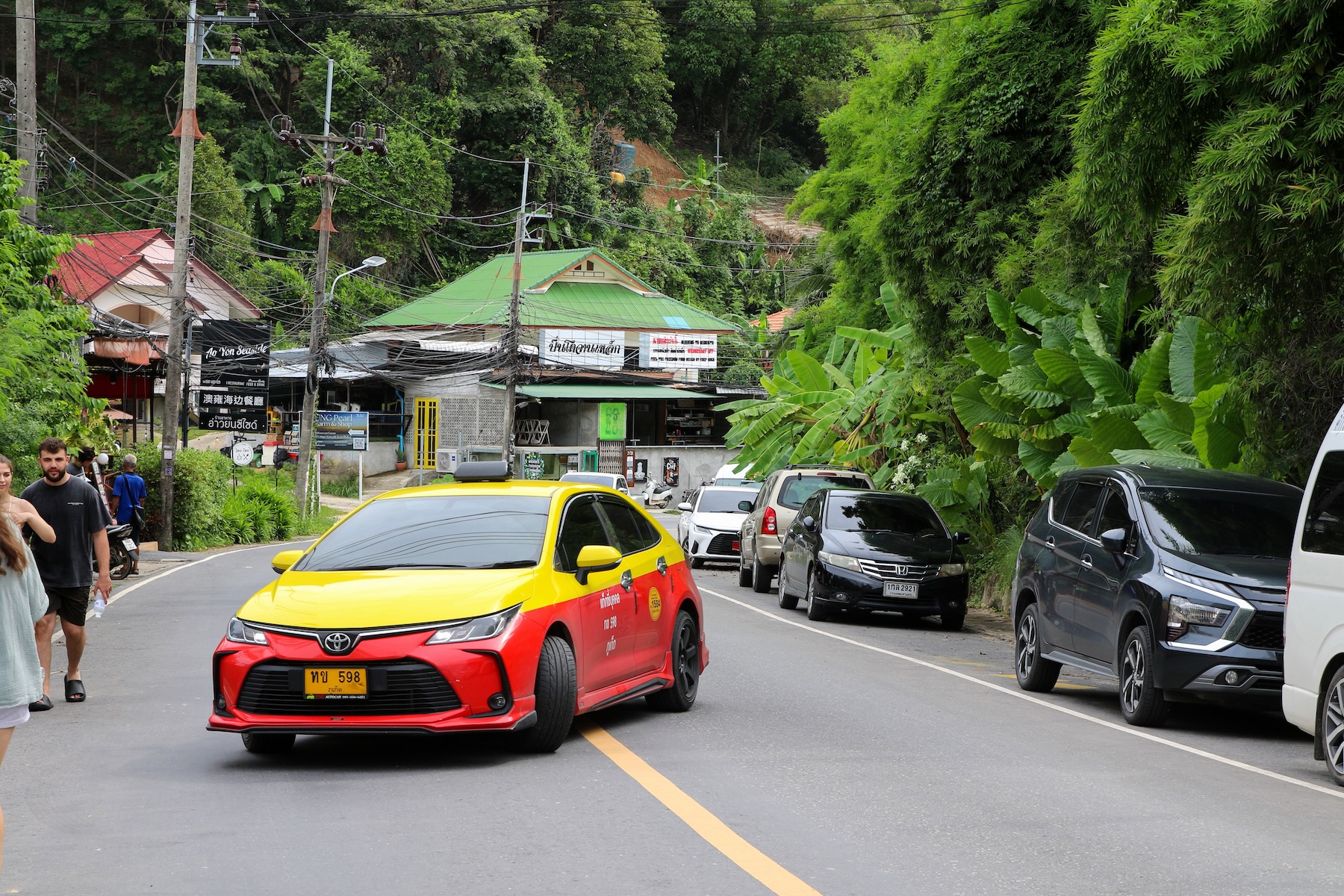
Some test centers differ, but you can usually rent a car before the exam to practice. If you fail, you have 90 days to rebook and complete the test. Once you pass the test, you can head inside to a DLT desk to process your application.
Driving lessons in Thailand
Thailand does not offer learner or provisional permits, so you must take lessons at a designated school. There are many driving schools to pick from, though only a few are in English.
You can check directory platforms online or browse social media testimonials to find lessons for expats. The added convenience of many driving schools functioning as test centers provides an all-in-one solution to getting a license.
In general, schools offer between 10 to 20 lessons to get you test-ready. These crash course-type lessons will use the same course as your test with packages starting from about ฿4,000.
Thai driving schools
The following schools offer expat-friendly lessons with English availability:
Driving with a foreign driver’s license in Thailand
Most tourists and new arrivals can use their existing foreign driver’s license in Thailand. However, you should obtain an IDP before arriving in the country, which allows you to drive in Thailand for up to a year.
It is worth pointing out that an IDP is not a license; it is just a translation of your foreign license into English with standardized driving terms. As such, you must always have your original license and an IDP with you when driving.
Once you meet the one-year threshold or become a permanent resident in Thailand, you’ll want to convert your foreign license to a local one. The benefits of a Thai license go beyond just permission to drive. A driving license is a valid and useful form of ID.
If you are stopped by police while driving, they may not recognize an IDP or a foreign driving license, so getting a Thai driver’s license is essential if you drive a lot.

Local expert
Jane Evans
Insider tip
If your foreign driver’s license is due to expire in the upcoming years, it can be worth exchanging your license early. Otherwise, you’ll have to undergo the practical and theory tests when applying for a Thai driving license.
Exchanging a foreign driver’s license in Thailand
If you already hold a valid driving license from your home country, exchanging it is fairly straightforward. You’ll need to apply at a local DLT office, so book online or call ahead to secure an appointment.
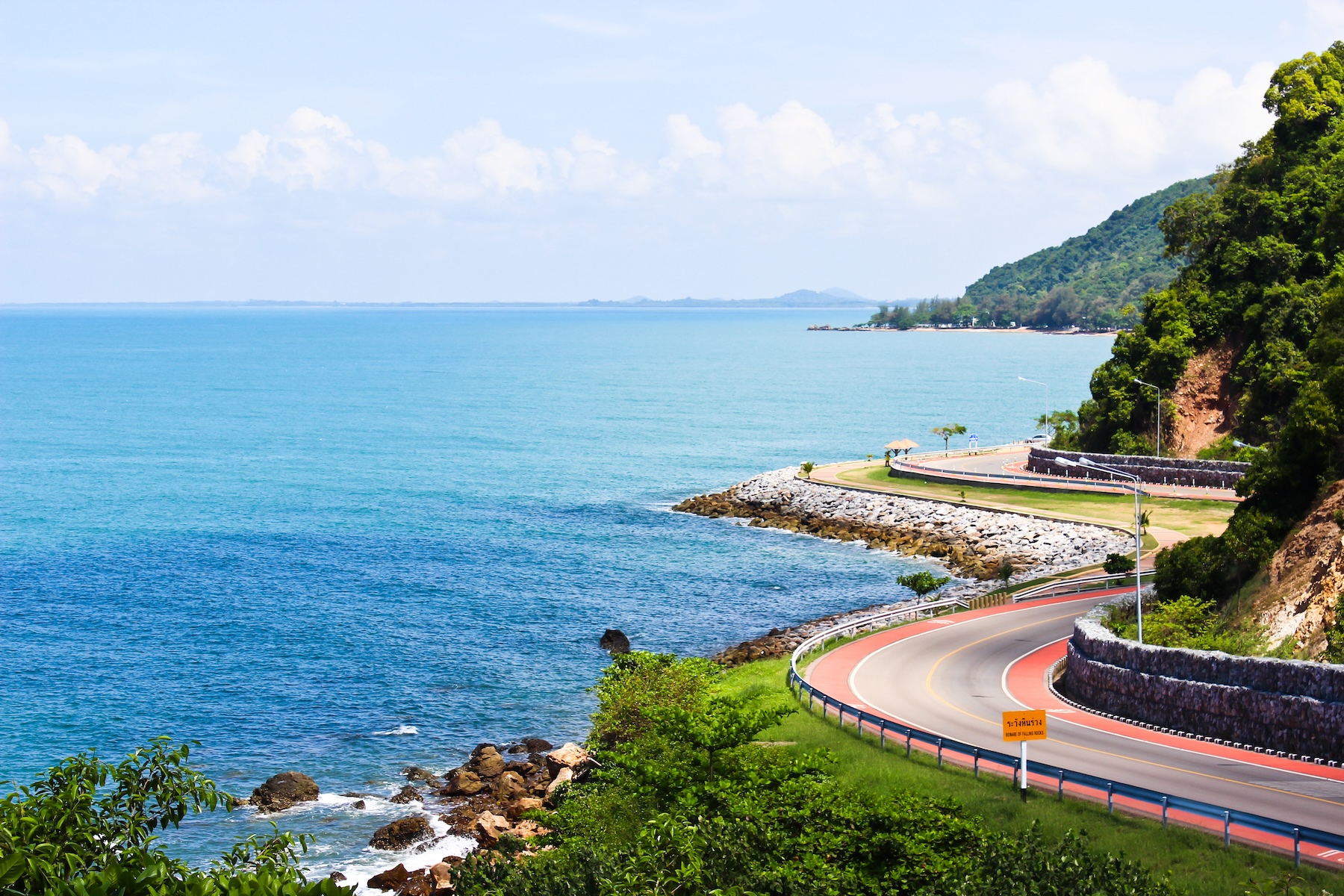
When it’s time for your appointment, be sure to bring the following documents:
- Your passport containing a valid visa, plus a photocopy of the photo page and current visa
- Certificate of residency or a Thai work permit
- Medical certificate awarded in the last month
- Original driver’s license, plus a photocopy
- Translation of your driving license into English or Thai or an IDP
- Two recent passport-sized photographs
You’ll have to undergo awareness testing in the form of color blindness, reflex, and depth perception exams. As long as you clear these tests, you’ll be awarded a temporary license that’s valid for two years. This can be upgraded to a five-year standard license upon the first renewal. In total, the application costs roughly ฿600.
Renewing a Thai driving license
A standard Thai driver’s license is usually valid for five years. However, your first license will be classified as a temporary permit valid for two years. Both types are renewed in the same way. You’ll need to book an appointment at your local DLT office and undergo a set of reflex tests, as you did to apply the first time. Alternatively, you can download the DLT Smart Queue app to book and track an appointment.
You should be careful not to apply for renewal too late because renewing past the expiration date may result in additional tests or fees. Aim to begin the renewal process at least two weeks before your current license expires.
You can begin the renewal process online. While you cannot fully renew your license this way, you can view the mandatory traffic safety videos required with each renewal. This will save you time at the DLT office. Bring the QR codes with you alongside your application documents. In total, the renewal costs roughly ฿505.

Local expert
Jane Evans
Insider tip
Always check the expiration date on your Thai driving license and extend it before it expires so you don’t have to go through a longer process. A first Thai driving license is usually valid for one year, and a second for five years.
Lost or stolen driving licenses in Thailand
You can order a replacement if you lose or damage your driver’s license. First, you should report it missing to the local police. The police will present you with a signed report you can later show to a DLT staff member.
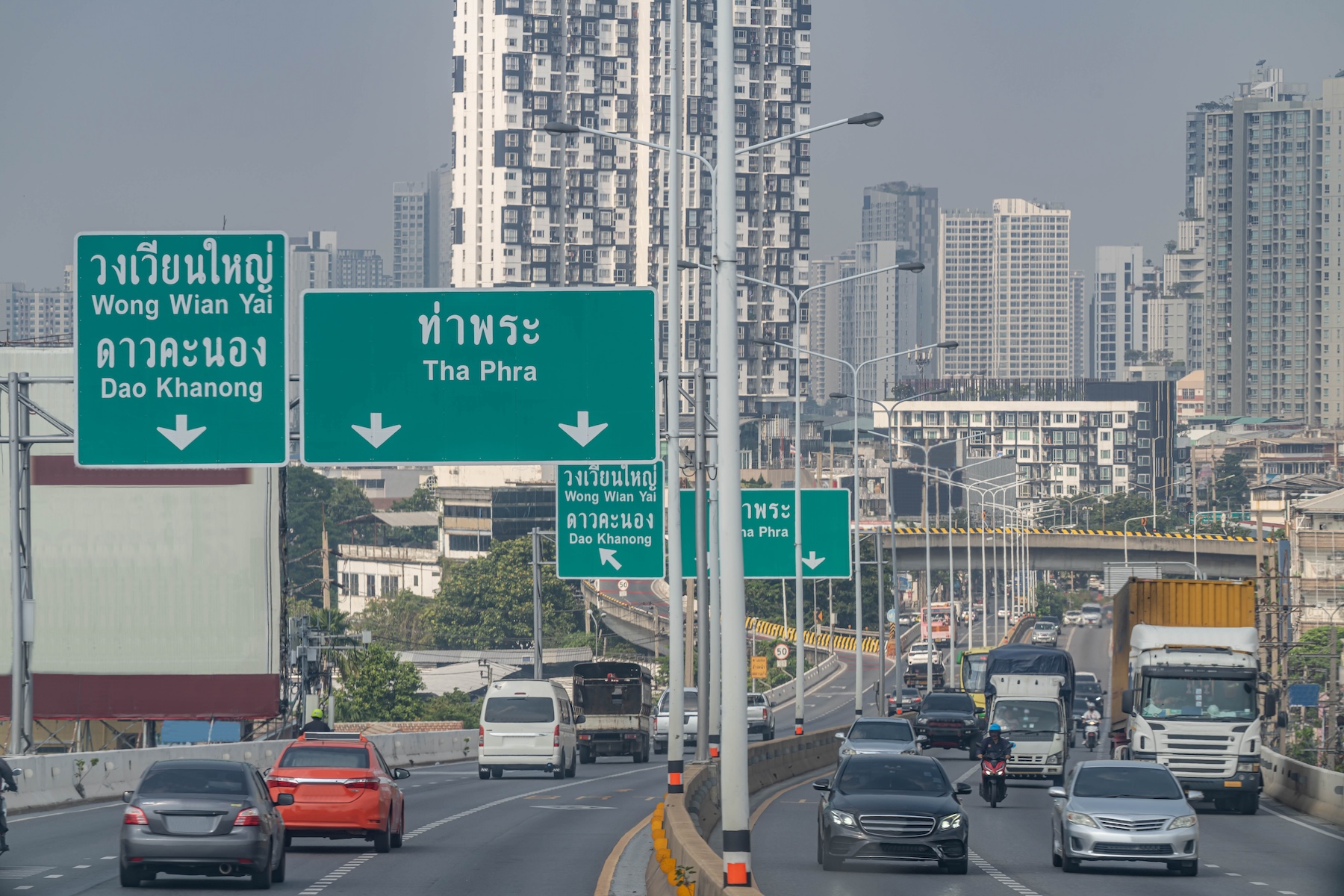
Booking an appointment with your local DLT office is a straightforward process. You may need to bring signed photocopies of your passport and visa, but remember that requirements can vary. Having a spare passport-sized photograph is always a good idea. The renewal fee for a replacement license is ฿505.
Thai driving licenses for other vehicles
There are several categories and classes of driver’s licenses in Thailand that allow the holder to drive private and commercial vehicles, including:
- Temporary license (ใบอนุญาตขับขี่ชั่วคราว): This is your first license, valid two years and renewable into a standard license. Thai rental companies may be stricter when renting to a temporary license holder. What’s more, a temporary license holder cannot apply for an IDP. It is available for cars, tricycles (tuk-tuks), and motorcycles.
- Standard private license (ใบขับขี่รถยนต์ส่วนบุคคล): A standard five-year license available for cars, tricycles (tuk tuks), and motorcycles
- Public driving license (ใบขับขี่รถยนต์สาธารณะ): This commercial driving license is valid for three years and allows the holder to drive a taxi or GrabCar. It is available for cars, tricycles (tuk-tuks), and motorcycles.
- Road roller license (ใบขับขี่รถบดถนน, bai kàp kèe rót bòt tà-nŏn): A specialist license that allows the holder to drive road rollers
- Tractor license (ใบขับขี่รถแทรกเตอร์): A specialist license that allows the holder to drive a tractor
- Other vehicles (ใบขับขี่รถชนิดอื่นนอกจาก (1)-(9)): A specialist license for additional agricultural vehicles not covered in DLT categories 1-9
Useful resources
- Department of Land Transport (DLT) – Thai department in charge of road transport
- DLT Smart Queue – the official platform where you can book and track license appointments
- Driving Exam Thailand – mock theory tests for first-time driver’s licenses
